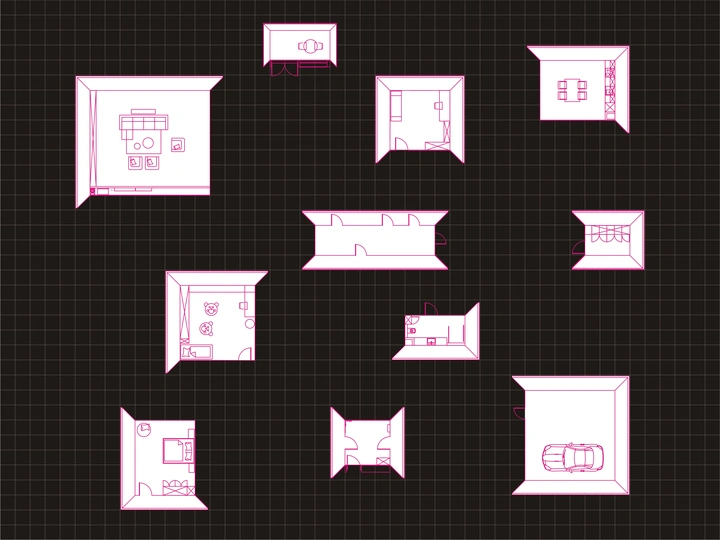Potential spaces

Verónica Sotelo
Unbuilt Office was founded by Verónica G.Sotelo and Agata Ruchlewicz-Dzianach in 2020. Verónica is a Spanish architect interested in architecture in all its multiple forms, from residential projects to city interventions and most particularly how it is involved in shaping society. Agata is a Polish artist and designer interested in the relationship between humans and urban space, focusing on subjective and emotional perception. They started collaborating together to experiment with the methodology of research and the boundaries of architecture, all of it explored from the feminine perspective.
Agata Ruchlewicz-Dzianach is an artist, designer, and researcher. Graduated from the Academy of Fine Arts in Gdansk (PL). Working on a PhD thesis. Since 2020 she has been teaching at the Faculty of Architecture at her alma mater.
Owner of design studio Pracownia ARD (2013). Co-creator of the GrubyPunkt Urban Lab (2011) with which she organized many art participative projects in Poland and abroad, leading workshops and collaborative walks. Actively involved in research on architectural education and activities promoting gender equity in architecture. Co-author of the scientific book (2020) “Powszechna edukacja architektoniczna.” (“Universal architectural education.”).
Verónica G.Sotelo is an architect graduated from the Polytechnic University of Catalonia-BarcelonaTech (UPC) in 2009 and co-founded with Ondrej Fabian of the architectural practice Dropstudio. Their work expands from residential projects to urban interventions and research with participatory projects. She has obtained international working experience in several architectural studios such as Urhan Urban Design, Amsterdam (NL), Castroferro (ES), Villacé y Cominges, Vigo (ES), and Aziza Chaouni Projects, Toronto (CA). Verónica has performed as a substitute Professor for the Undergraduate and Graduate studios of the John H. Daniels Faculty of Architecture, Toronto, and has been invited as a guest critic.
An important number of people are suffering from loneliness in places as crowded as cities. Social isolation or living alone are risk factors for premature death as great as air pollution. With the climate crisis, more migrations will be happening. It is estimated that 6 out of 10ppl will live in urban areas by 2030. On the other hand, the global population is getting older, rising to 2.1bln 60+ yo ppl by 2050 (UN DESA).
Our research questions whether architecture can prevent loneliness. The topic arose from discussions about our daily surroundings. Living in a work-centric society where even sleep becomes a luxury (Crary), there is less time for non-material things, such as time spent together. Brach-Czaina says “everyday life, constituting the existential background of extraordinary events that we expect often in vain, can decide everything”. We question if the long-established division into private and public space is still valid, or if we should go beyond the socially constructed norms to refresh the definitions and the understanding of space.
Perec once asked provocatively if we could live at the airport. Apart from habits and norms, it would depend on the individual need for comfort. Our research is concentrated on potential common spaces in the neighborhoods beyond what is familiar and comfortable. We’re interested in future spatial solutions encouraging community building through individualism understood as an engine to reinvent neighbors’ ties. In liquid modernity (Bauman), where bonds are unstable and fragile, we believe architecture can unite people.
Our experimental exploration of spatial individual needs and shared spaces is underway, considering also historical contexts e.g. disbelief in the common good caused by a forced sharing economy in the communist time. The first draft results were surprising, prompting an updated survey, now being sent out. The project aims not only to raise awareness but also to develop new or transformed spatial solutions.